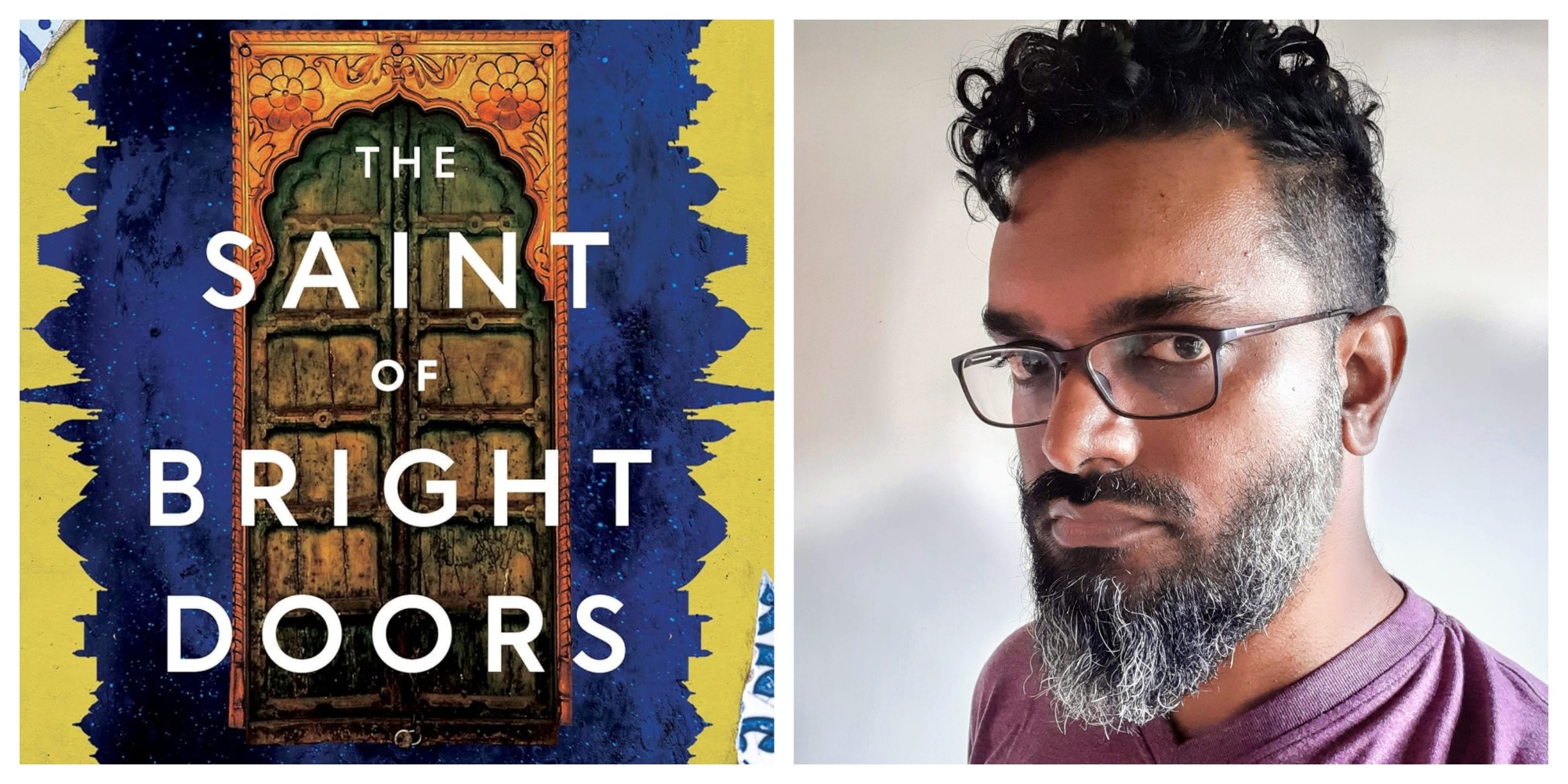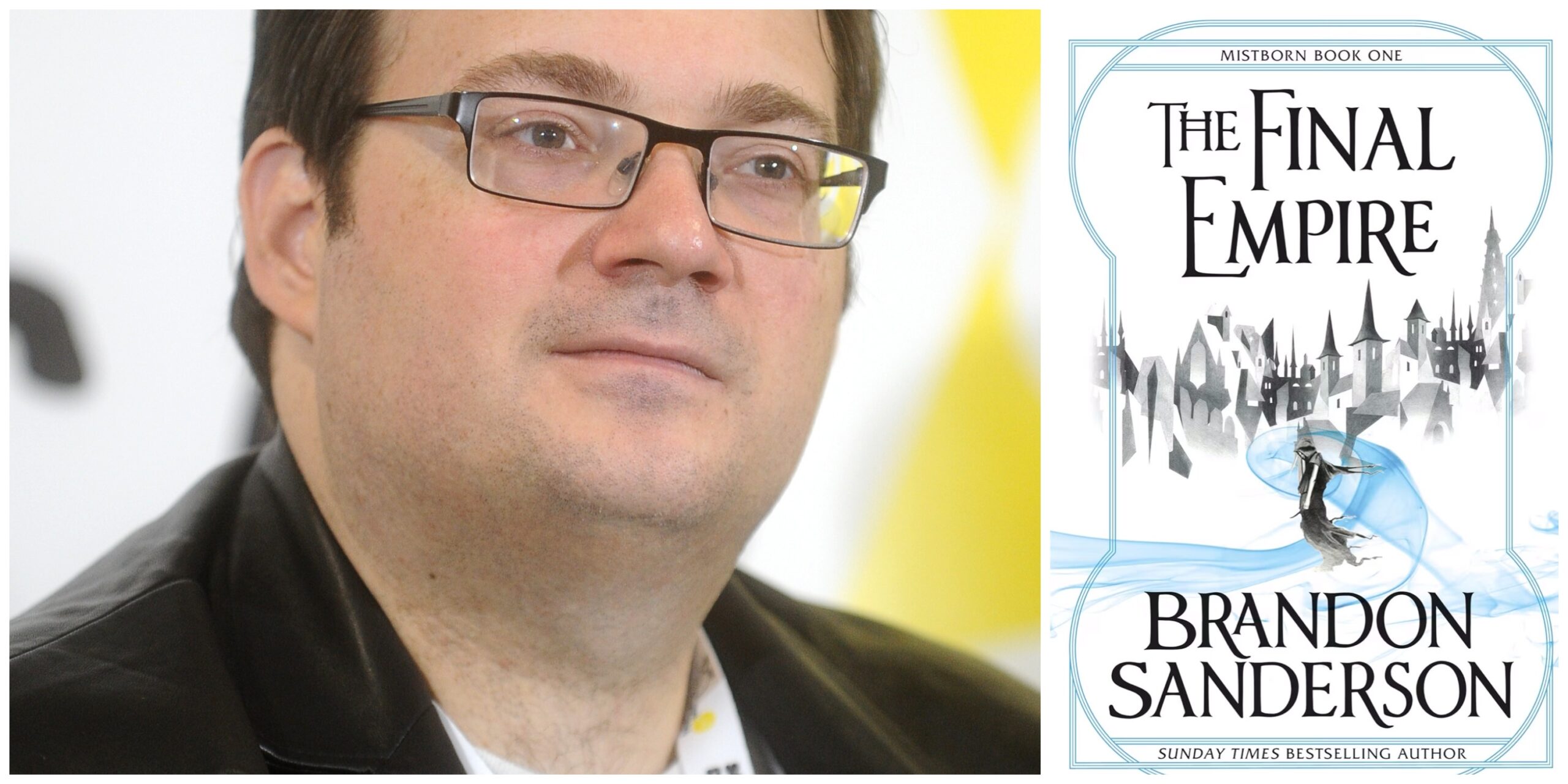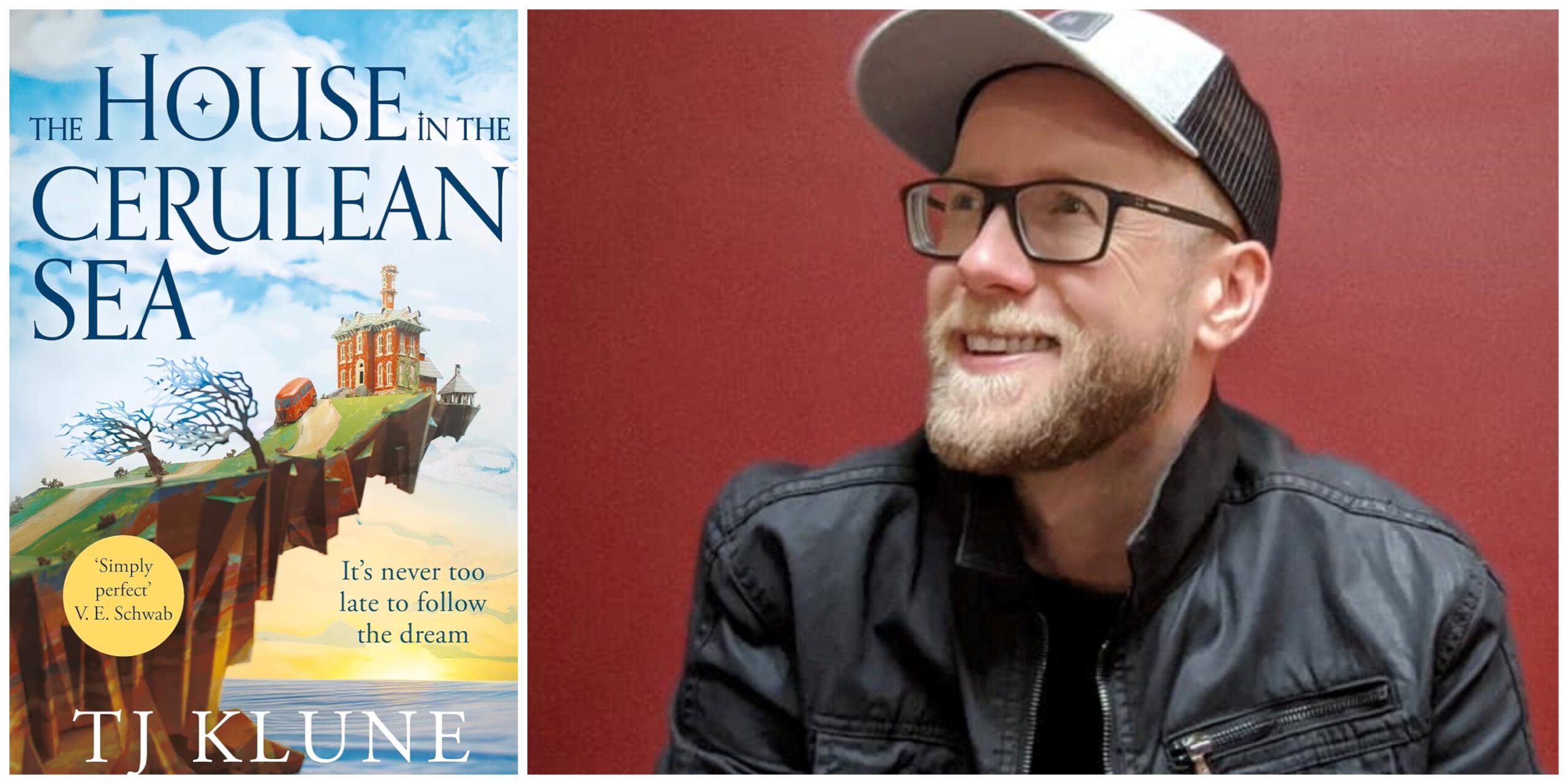Review: The Saint of Bright Doors by Vajra Chandrasekera
Vajra Chandrasekera

Vajra Chandrasekera hails from Colombo, Sri Lanka. His debut novel, The Saint of Bright Doors, won Nebula, Ignyte, Crawford, and Locus awards while being nominated for a handful of others. As well as his award-winning novel, Chandrasekera has published more than 50 short stories and he’s also worked as a fiction editor.
The Saint of Bright Doors: Spoiler Free Review
The Saint of Bright Doors is a unique fantasy novel with its own fantastical vibe set in a fictional city called Luriat. The author draws on his experience living in Sri Lanka to blend his wholly original worldbuilding with his Sri Lankan heritage to create a unique fantasy world that’s equal parts entertaining and thought-provoking.
This almost surreal at times urban fantasy novel blends aspects of modernity, identity, and fantasy together to create a wonderful melange that gives The Saint of Bright Doors its own unique feeling. This is a smart book with a clever approach, and there were times reading it where I thought I was missing something important. Many of the setting’s more unusual details are presented to the reader as-is without further explanation; conversely, some aspects of the world, such as its rich history, are explored in-depth, for reasons which become clear only much later on in the narrative.
Written in a third-person perspective using the present tense, the book immediately stands out from many others in the fantasy genre. Its central character is Fetter, one of many “Unchosen” people related to various different religious groups and cults present in the world of Luriat who were discarded as Messiah figures or other religious positions, whose Unchosen nature has some lingering effect on their lives moving forward. Fetter becomes embroiled in a mystery as his drifting, unfocused life catches up to his history and identity in a way that he never wanted it to.
The book has excellent queer representation woven artfully into the world and narrative in a way that feels real. This is a clever book and its themes of history, mythmaking, identity and colonialism are powerful aspects that make this book layered journey well worth the read.
Spoiler-free Verdict
I really, really enjoyed this book. It was the first book I read in 2025, and I feel like I started the year off with a bang. This is a fantasy well worth an initial read, and I intend to go back and read it again. Its unique setting, the weight of its world, and intriguing approach make it easy to see why it’s won the awards it has.
The Saint of Bright Doors: Review with Spoilers
When I started reading The Saint of Bright Doors, I was initially put off by the style. I don’t tend to like present tense. Once I got into it, though, I was hooked. This is a fantastic novel with a lot to love. Set in a world blending aspects of urban fantasy, wholly original worldbuiilding from Chandrasekera, and Sri Lankan myth and culture, Luriat is full of complex ideas and characters that is well worth the read.
When we’re first introduced to Fetter, it’s with his mother killing his shadow. This comes back later, and it’s a masterful use of foreshadowing because at the time, the detail seems unimportant. The book blends modern narrative structure with the feeling of an ancient myth which ties in perfectly to its larger themes surrounding mythologisation of history and how narratives are created inside and outside of religions and religious groups.
As a protagonist, Fetter is an interesting choice. “Fated” to kill his father, Fetter ran from his destiny some time before the book begins, ending up in Luriat, the city of bright doors. There are times during the narrative where he feels almost dissociated, as if we’re viewing him from a distance. This is of course true, as at the end of the book, we learn that the story has been told not from Fetter’s perspective, but from the perspective of his shadow — the very shadow which was removed from him during the start of the book. Yet Fetter, whose father is a famous and beloved living Messiah figure, has many interesting qualities of his own, even if he does drift through life largely unfocused until he becomes embroiled in the mystery of the “bright doors.”
The titular “Bright Doors” give an interesting mystery for Fetter to explore, and it’s this that gets him involved in the major events of the novel. While this mystery is engaging, the way Chandrasekera embeds it into a wider story of colonialism, racism, and authoritarianism is masterful. Every piece of the story feels relevant to every other, as the various plotlines coalesce into one towards the end of the novel.
This is a clever book. There were many points, including at the end, where I went away feeling like I “missed” something, because Chandrasekera doesn’t overexplain. The Saint of Bright Doors is a novel which rewards — requires — some independent thinking to fully appreciate. This is a book I enjoyed immensely, and although it was the first book I read in January 2025, I do feel like it’s a contender for the best book I’ll read this year.
Verdict with Spoilers
Well worth the read. I intend to read it again, when I have time and when it’s less fresh in my mind. This is a clever book with interesting themes and I enjoyed the cast of characters and the world’s unique setting. For a debut, this is a masterful piece of work which needs to be enjoyed by as many fans of fantasy as possible.




